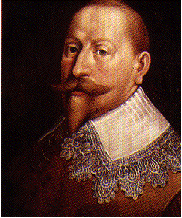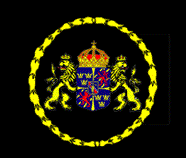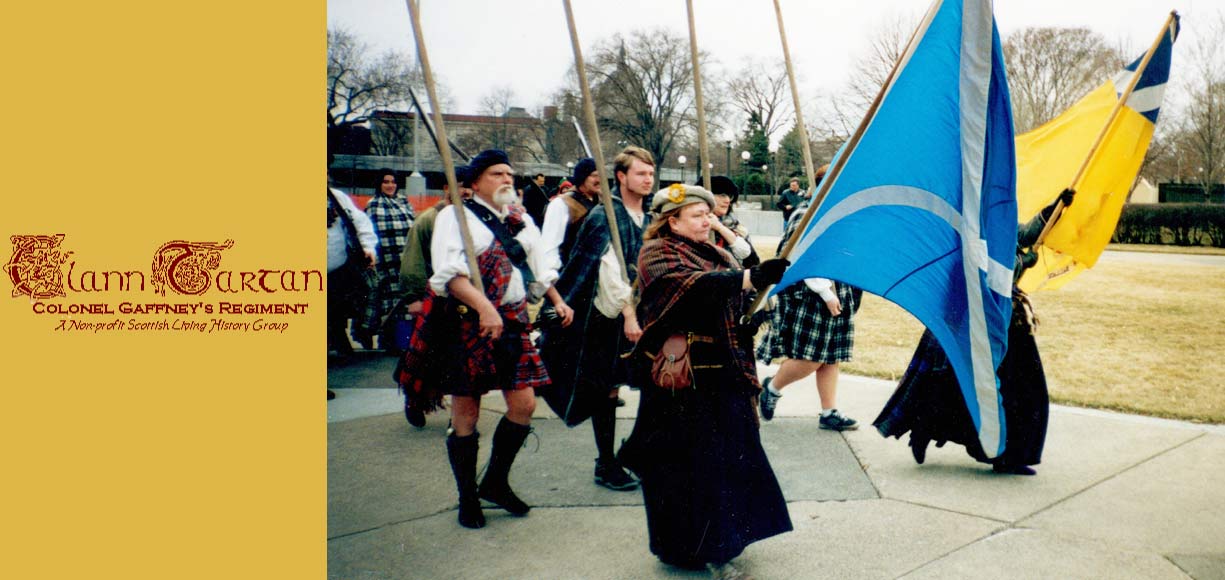Gustavus Adolphus: 1611-30
 The most romantic figure in Swedish history was now sixteen. His mother was a German, daughter of Duke Adolphus of Holstein-Gottorp. Father and mother gave him a rigorous education in the Swedish and German languages arid in Protestant doctrine. By the age of twelve he had learned Latin, Italian, and Dutch; later he picked up English, Spanish, even some Polish and Russian; to which was added as strong a dose of the classics as comported with training in sports, public affairs, and the arts of war. At the age of nine he began to attend the sessions a. the Riksdag; at thirteen he received ambassadors; at fifteen he ruled a province; at sixteen he fought in battle. He was tall, handsome, courteous, generous, merciful intelligent, brave; what more could history ask of a man? His popularity was so universal in Sweden that even the sons of nobles whom Charles IX had executed for treason came willingly to serve him.
The most romantic figure in Swedish history was now sixteen. His mother was a German, daughter of Duke Adolphus of Holstein-Gottorp. Father and mother gave him a rigorous education in the Swedish and German languages arid in Protestant doctrine. By the age of twelve he had learned Latin, Italian, and Dutch; later he picked up English, Spanish, even some Polish and Russian; to which was added as strong a dose of the classics as comported with training in sports, public affairs, and the arts of war. At the age of nine he began to attend the sessions a. the Riksdag; at thirteen he received ambassadors; at fifteen he ruled a province; at sixteen he fought in battle. He was tall, handsome, courteous, generous, merciful intelligent, brave; what more could history ask of a man? His popularity was so universal in Sweden that even the sons of nobles whom Charles IX had executed for treason came willingly to serve him.
He did not display the Vasa tendency to personal temper and violence, but it appeared in his relish for war. He inherited from his father the Kalmar War with Denmark; he waged it zealously, but he felt that it was leading him in the wrong direction, and in 1613 he gave Denmark a million thalers ($10,000,000?) in exchange for peace and the free passage of Swedish vessels through the straits and the Sound. At this stage of his career he was more interested in keeping Russia out of the Baltic. "If at any time," he wrote to his mother, "Russia should . . . learn her strength; she would be able not only to attack Finland [then part of Sweden] on both sides, but also to get such a fleet on the Baltic as would endanger our Fatherland." He sent his most resourceful general, Jacob de la Gardie, to conquer Ingria, and in 1615 he himself laid siege to Pskov. The Russian resistance was troublesome, but by threatening to ally himself with Poland Gustavus persuaded Czar Michael Romanov to sign a peace (1617) recognizing Swedish control of Livonia, Esthonia, and northwestern Ingria, including what is now Leningrad. For the time being Russia was blocked from the Baltic. Gustavus boasted that without Swedish permission Russia could not launch a single boat upon that sea.
 Now he turned his attention to Poland, whose Sigismund III still claimed the Swedish throne. Catholicism was by this time victorious in Poland and was eager for another chance to capture Sweden; moreover, Poland, with great ports at Danzig, Memel, Libau, and Riga, was then a stronger competitor than Russia for control of the Baltic. In 1621 Gustavus led 158 ships and 19,000 men to the siege of Riga, through which a third of Polish exports passed. Its population was predominantly Protestant and might not resent a Lutheran overlord. When it capitulated, Gustavus dealt with it leniently to attach it to his cause. During a three-year truce with Poland he strengthened the spirit and discipline of his army and, like his contemporary Cromwell, made piety an instrument of martial morale. He studied the military art of Maurice of Nassau and learned how to win campaigns by swift movement and farseeing strategy. He brought in technicians from Holland to instruct his men in siege tactics and the use of artillery. In 1625 he crossed the Baltic again, captured Dorpat, confirmed Swedish control of Livonia, and completely shut out Lithuania from the Baltic Sea. A year later his armies subdued both East and West Prussia, which were fiefs of the Polish Crown; only Danzig held out. The conquered regions became provinces of Sweden, the Jesuits were expelled, and Lutheranism was made official. All Protestant Europe now looked to Gustavus as a possible savior in the Great War that was then devastating Germany.
Now he turned his attention to Poland, whose Sigismund III still claimed the Swedish throne. Catholicism was by this time victorious in Poland and was eager for another chance to capture Sweden; moreover, Poland, with great ports at Danzig, Memel, Libau, and Riga, was then a stronger competitor than Russia for control of the Baltic. In 1621 Gustavus led 158 ships and 19,000 men to the siege of Riga, through which a third of Polish exports passed. Its population was predominantly Protestant and might not resent a Lutheran overlord. When it capitulated, Gustavus dealt with it leniently to attach it to his cause. During a three-year truce with Poland he strengthened the spirit and discipline of his army and, like his contemporary Cromwell, made piety an instrument of martial morale. He studied the military art of Maurice of Nassau and learned how to win campaigns by swift movement and farseeing strategy. He brought in technicians from Holland to instruct his men in siege tactics and the use of artillery. In 1625 he crossed the Baltic again, captured Dorpat, confirmed Swedish control of Livonia, and completely shut out Lithuania from the Baltic Sea. A year later his armies subdued both East and West Prussia, which were fiefs of the Polish Crown; only Danzig held out. The conquered regions became provinces of Sweden, the Jesuits were expelled, and Lutheranism was made official. All Protestant Europe now looked to Gustavus as a possible savior in the Great War that was then devastating Germany.
In the intervals of peace, he had faced with less genius than in war the problems of internal administration. During his absence on campaigns he left the government to the nobles, and to ensure their fidelity he allowed them to monopolize office and to buy from the Crown vast estates at little cost. But he found time to stabilize finances, to reorganize the courts, the postal service, the hospitals, and poor relief. He established free schools, founded the University of Dorpat, and richly re-endowed the University of Uppsala. He prodded mining and metallurgy, and it was no small item in his successes that Sweden had materials and skill to manufacture armament. He promoted foreign commerce by granting monopolies and gave a charter to a Swedish South Sea Company. His minister Oxenstierna, known for his calm in crises, was appalled by his master's energy. "The King," he said, "controls and steers mines, commerce, manufactures, and customs just as a steersman steers his ship." He begged Gustavus to cool down. "If we were all as cold as you," answered the King, "we should freeze." "If we were all as hot as your Majesty," the minister retorted, "we should burn."
Now the consuming fever of the Swedish knight was to get into the Thirty Years' War. "All wars in Europe hang together," he said He had noted with deep anxiety the victories of Wallenstein, the advance of Hapsburg armies into northern Germany, the collapse of Danish resistance, the alliance of Catholic Poland and Catholic Austria; soon the Hapsburg power would seek control of the Baltic, and the commerce, religion, and life of Sweden might be at the mercy of the Empire and the papacy. On May 20, 1629, Gustavus sent to the Swedish Diet a warning of Wallenstein's plan to make the Baltic a Hapsburg sea. He recommended offense as the best defense, and asked the nation to support and finance his entry into the Armageddon that was about to determine the fate of theologies. Sweden was already heavily burdened by his campaigns, but the Diet and the people responded to his call. With the help of Richelieu he persuaded Poland to a six-year truce (September 1629). Nine months he spent collecting ships, provisions, troops, and allies. On May 30, 1630, he addressed the Diet in an eloquent and moving farewell, as if surmising that he would not see Sweden again. On June 26-28 his forces disembarked on an island off the Pomeranian coast, and Gustavus went forth to glory and death.
Taken from "The Story of Civilization: 7, The Age Of Reason Begins" by Will and Ariel Durant, MJF Books New York 1961

